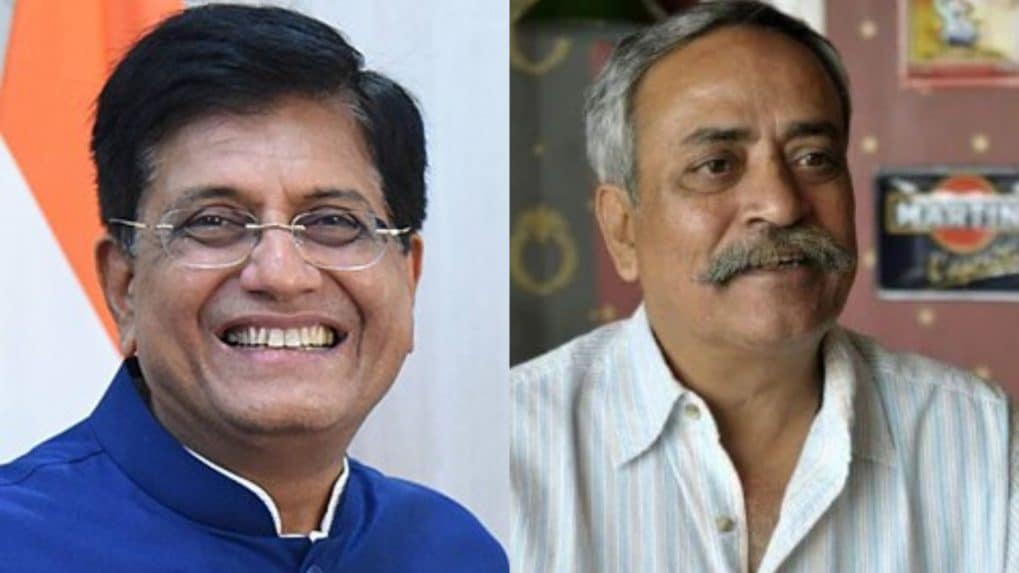Brand Makers
Dil Ka Jod Hai, Tootega Nahin

In a story that reveals the art — and hesitation — behind one of India’s most defining political campaigns, Union Minister Piyush Goyal has said that advertising legend Piyush Pandey initially refused to create the now-iconic 2014 slogan “Abki Baar Modi Sarkar.”
Speaking at an event celebrating the late adman, Goyal recounted how he spent seven hours trying to convince Pandey, who at the time was the creative head of Ogilvy India, to take on the Bharatiya Janata Party’s election campaign. Pandey declined that night. But the next morning, Goyal said, the ad man called back with a change of heart. “Yeh desh ki zaroorat hai,” Pandey told him — “this is the country’s need.”
That moment of persuasion set the stage for one of India’s most memorable pieces of political communication — a slogan that would come to define Narendra Modi’s rise to national prominence and the BJP’s landslide victory in 2014.
Pandey’s hesitation was rooted in principle. Ogilvy had a long-standing policy of not working directly with political parties. Known for his folksy and distinctly Indian brand of storytelling that shaped campaigns for Cadbury, Fevicol, and Asian Paints, Pandey was initially wary of the divisive tone that political advertising can take.
“Abki Baar Modi Sarkar” — one of India’s most iconic political slogans — almost didn’t happen!
— Storyboard18 (@Storyboard18_) November 2, 2025
Piyush Goyal @PiyushGoyal @PiyushGoyalOffc revealed that Piyush Pandey @Ogilvy initially refused the campaign, even after a 7️⃣-hour meeting. But the very next morning, Pandey called… pic.twitter.com/EeZDeOATTo
But when he finally agreed to the project, his approach remained true to his advertising instincts — simple, colloquial, and emotionally resonant. The phrase “Abki Baar Modi Sarkar” — roughly translated as “This time, a Modi government” — used repetition and rhythm to drive recall. Its conversational Hindi, short syllables, and chant-like cadence gave the slogan an immediacy that appealed across regions and classes.
The campaign broke new ground for political advertising in India. It borrowed the discipline and polish of corporate brand-building — consistent messaging, coordinated visuals, and multimedia amplification — and merged it with political mobilization. The BJP’s team deployed the slogan across television, radio, outdoor billboards, and social media, ensuring the message was ubiquitous in the months leading up to the election.
The simplicity of the line belied the sophistication of the campaign behind it. Marketing observers later compared “Abki Baar Modi Sarkar” to some of the most enduring political slogans globally, concise, evocative, and designed to be repeated.
For Pandey, the project marked an unusual but defining moment in his career. In later interviews, he reflected that what ultimately convinced him was not politics, but purpose — the belief that India was ready for change and that the message needed to speak to the aspirations of ordinary citizens.
More than a decade later, the slogan remains a fixture in Indian political and marketing lore — an example of how purpose, persuasion and one man’s decision helped shape the language of a nation’s election.
"The raucous, almost deafening, cuss words from the heartland that Piyush Pandey used with gay abandon turned things upside down in the old world order."
Read MoreFrom OpenAI’s ChatGPT-powered Atlas to Microsoft’s Copilot-enabled Edge, a new generation of AI-first browsers is transforming how people search, surf and interact online — and reshaping the future of digital advertising.